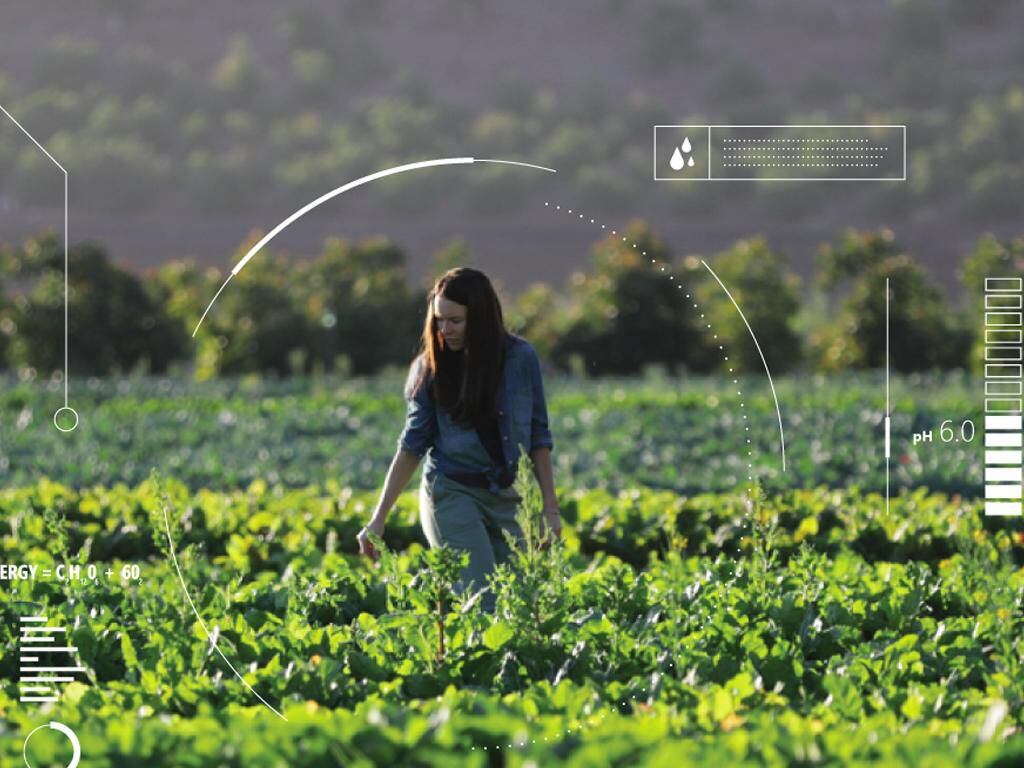
Who can process the enormous information provided by hundreds of satellites? Who is capable of scrutinizing millions of past weather maps to learn what the future will be like? to review in real time the emissions responsible for the climate change? Answer: the Artificial intelligence.
Subject to a debate on the ethics of this technology and about the risks for humanity that machines can become completely autonomous and even surpass, through machine learning, the human mind that designs them, the Artificial intelligence For experts, it is an essential tool to combat the challenge of climate change.
Within the framework of the climate summit (COP28) held in Dubai, the multinational Microsoft and the United Nations Framework Convention on Climate Change (UNFCCC) have announced the collaboration agreement that will allow this international organization to create a new platform for Artificial intelligence and a global data center on climate to measure and analyze global progress in reducing emissions.
This will significantly simplify the process to validate and analyze the climate data presented by the 196 signatories of the Paris Agreement, stressed the technology company, whose president, Brad Smith, explained that “you cannot fix what you cannot measure.” ” and has been convinced that these new tools of AI and data will allow countries to measure their emissions better than they were doing until now, in addition to saving time and resources.
A “digital twin” that replicates the Earth
Some universities already use the thousands of data provided by Earth observation satellites to calculate the emissions of some of the greenhouse gases responsible for the climate changeand research centers entrust the AI the meta-analysis of thousands of investigations to refine the impact that climate change will have on the planet.
The world organization Climate change-Artificial intelligence (CCAI) brings together hundreds of researchers and academics from different fields and around the world who are trying to take advantage of the advantages that machine learning can bring to the fight against the climate crisis, and under the umbrella of some of the most prestigious institutions in the world (including them the Massachusetts Institute of Technology) have begun to generate numerous reports that support the importance of this technology.
The European Commission has launched an initiative, Destination Earth (DestinE), with an initial budget of 150 million euros, to create a “digital twin” of the Earth and virtually replicate the Earth system to predict and combat in a more efficient way. efficient the effects of climate changeaccelerate the ecological and digital transitions and test more sustainable future scenarios.
This European program, which already has numerous associated research organizations (among them the National Supercomputing Center of Barcelona; the European Center for Medium-Term Weather Prediction or the European Space Agency), has an execution horizon of ten years to complete. that complete virtual replica that allows predicting the state of health of the Earth and the evolution of the oceans, the atmosphere or the forests.
According to the supercomputing center, it is about this virtual planet showing different scenarios of what a changing present is and what the future could be like taking into account climate changes, and simulating what could happen if the Earth warms up a few times. degrees and sea level rises.
AI, “it cannot and should not be stopped”
Researchers from various universities and research centers in several countries, including several experts from the Swedish Royal Institute of Technology, have signed and published an article in the journal Nature in which they pointed out that climate emergency It is the greatest challenge of humanity, in which its impacts are going to spread through all sectors of society, and in which no technology can be dispensed with to combat it, and neither can Artificial intelligence.
Among the signatories is Alberto Conejero, researcher at the University Institute of Pure and Applied Mathematics and vice-rector of the Polytechnic University of Valencia, who has stressed that the Artificial intelligence It neither can nor should be stopped”, and has assured that this technology is “key” to be able to interpret millions of documents, to improve models or to navigate among millions of data; “Eliminating it would be a big mistake.”
In statements to EFE, Conejero has stressed the pressing need to stop greenhouse gas emissions and address this emergency, and has assured that to do so “the development, deployment and expansion of well-regulated artificial intelligence tools would make it easier to understand the scope of the deployment of certain policies.”
In his opinion, real-time monitoring is still very difficult, because more data is necessary to improve the training of the AI and offer better recommendations, but has valued initiatives such as “Destination Earth” to have a digital model and evaluate different scenarios “choosing those that allow us a more sustainable development.”
The AI is the path, the worse it is the action of the rulers that should direct us to comply with the agreements,” stated the researcher from the Valencian university, and has agreed that the Artificial intelligence “It is the tool that can and should help achieve the objectives.”
Source: Gestion
Ricardo is a renowned author and journalist, known for his exceptional writing on top-news stories. He currently works as a writer at the 247 News Agency, where he is known for his ability to deliver breaking news and insightful analysis on the most pressing issues of the day.











